
Yesterday he said good bye to his family, his friends and to all the dear ones around him. He was still smiling at the time of his death. He lived and died without regret. He taught everybody that there is a another way. He showed us how to not cling to worldly pleasures, at the time of death. How to "let go" with ease.
This is about a personal journey I had with my friend who was a true noble disciple of the Buddha. He used to discuss Dhamma with me every time I met him in the past few years. He had practiced, loving kindness, compassion, sympathetic joy, and equanimity (The Four Sublime States), even before I got to know him ten years ago. His wife once told me that when his house was robbed and she was devastated, he had taught her Dhamma, explaining the impermanent nature of material things. When he was told that he had lung cancer by the oncologist, he joked with him so that everybody would laugh and that would ease the tension around them.
I still remember when I first went to see him at home after he was diagnosed with lung cancer. He told me "this body is not mine, I am only in it for the time being." He said "I now know this for sure." He said "I have no control of my body or my pain. He was talking about, non-self or Anatta. He said he was contemplating on the impermanence, suffering, and non-self nature of his ailing body. He said he was also practicing loving kindness meditation. He was then taken to the hospital and after investigations it was determined that he could not be treated. He had too many metastasis in the brain and all over his body and also was very weak. I think it must have been a very aggressive type of cancer for it to spread this fast in such a short time. He was only a palliative care patient at the hospital. I was told by his wife that he took this news with a smile on his face and the people around him were shocked and watched him in disbelief and shock and with so much sadness.
When I visited him at the hospital on the fist day he was smiling and looked so peaceful and serene. He was extremely happy to see me. We discussed some of the deep teachings of the Buddha. He said "what I learned and practiced before, I am experiencing right now. This is the true nature of Dhamma." He also talked about impermanent nature of the body to the social workers in the hospital who came to comfort him. He drew a picture with the art therapist which was very unique. It was a picture of four flowers and one flower was fading away with petals coming off. The other three flowers were his wife and two children who he left behind. The fading flower was him. He again wanted us to learn about impermanence through his painting. When I saw this picture I told his wife maybe he was teaching them a lesson about the true nature of life.
When I visited him again his body was very weak, but his mind was fully alert. It seemed to me as if all his energy had gone to his mind. He was still smiling and again we discussed the impermanent nature of the conditioned body. He advised my wife, saying that it is not too early to teach our kids about impermanence. When one of his old colleagues came to see him and asked him "how are you doing?" He replied saying, "my mind is fine but this body is just a pile of garbage." His visitor was shocked to hear this as he expected the patient to complain about the pain in his body. However I knew that his visitor had no clue about what he really meant or that he was trying to teach him about impermanence.
This is about a personal journey I had with my friend who was a true noble disciple of the Buddha. He used to discuss Dhamma with me every time I met him in the past few years. He had practiced, loving kindness, compassion, sympathetic joy, and equanimity (The Four Sublime States), even before I got to know him ten years ago. His wife once told me that when his house was robbed and she was devastated, he had taught her Dhamma, explaining the impermanent nature of material things. When he was told that he had lung cancer by the oncologist, he joked with him so that everybody would laugh and that would ease the tension around them.
I still remember when I first went to see him at home after he was diagnosed with lung cancer. He told me "this body is not mine, I am only in it for the time being." He said "I now know this for sure." He said "I have no control of my body or my pain. He was talking about, non-self or Anatta. He said he was contemplating on the impermanence, suffering, and non-self nature of his ailing body. He said he was also practicing loving kindness meditation. He was then taken to the hospital and after investigations it was determined that he could not be treated. He had too many metastasis in the brain and all over his body and also was very weak. I think it must have been a very aggressive type of cancer for it to spread this fast in such a short time. He was only a palliative care patient at the hospital. I was told by his wife that he took this news with a smile on his face and the people around him were shocked and watched him in disbelief and shock and with so much sadness.
When I visited him at the hospital on the fist day he was smiling and looked so peaceful and serene. He was extremely happy to see me. We discussed some of the deep teachings of the Buddha. He said "what I learned and practiced before, I am experiencing right now. This is the true nature of Dhamma." He also talked about impermanent nature of the body to the social workers in the hospital who came to comfort him. He drew a picture with the art therapist which was very unique. It was a picture of four flowers and one flower was fading away with petals coming off. The other three flowers were his wife and two children who he left behind. The fading flower was him. He again wanted us to learn about impermanence through his painting. When I saw this picture I told his wife maybe he was teaching them a lesson about the true nature of life.
When I visited him again his body was very weak, but his mind was fully alert. It seemed to me as if all his energy had gone to his mind. He was still smiling and again we discussed the impermanent nature of the conditioned body. He advised my wife, saying that it is not too early to teach our kids about impermanence. When one of his old colleagues came to see him and asked him "how are you doing?" He replied saying, "my mind is fine but this body is just a pile of garbage." His visitor was shocked to hear this as he expected the patient to complain about the pain in his body. However I knew that his visitor had no clue about what he really meant or that he was trying to teach him about impermanence.
Meanwhile a number of Buddhist monks visited him from the three Buddhist monasteries in Toronto, almost daily, and taught him Dhamma and discussed Dhamma with him. They were very surprised to see how well he received all their teachings with complete mindfulness. The monks also said that they had discussed Anathapindikovada Sutta , one of main disclosures at the time of the Buddha. This was a disclosure done by one of the Buddha's chief disciples, Ven. Sariputta to Anathapindika. Anathapindika was one of the main lay supporters of Buddha and his disciples. At that time Anathapindika too was dying from a painful illness.
.
The last time I visited him it was just three days before his death. He was sleeping a lot and I felt that he was drowsy because of the heavy pain medications. He was hardly eating any food at that time. When he heard our voices he opened his eyes and signalled with one hand for us to come closer. He smiled again and was very happy to see us. I asked him " are you in pain?" He said, "no, not even a little." Then I asked him if he had any regrets and if he wanted to talk about it. He shook his head and implied there were no regrets. His voice was very weak and we could hardly hear him but still he was so happy and peaceful. When he realized that we could not hear him he started talking in "sign language." He pointed to his body and snapped his fingers implying the impermanent nature of the body. Then he pointed to his head and singled "thumbs up" saying that his mind was still very alert and clear."
That was the last time I saw him. This is a perfect example of a person "who lived by Dhamma , and was protected by the Dhamma", until his death. I have seen so many people dying in the past, but I have never seen a person who died with full mindfulness till his very last breath. He was a teacher to us all. He had the "medicine" ready, before he was ill. He just has to use it at the right time. This is the "medicine to the mind" (see the post below). He was fearless at death and died with dignity and without regret. I wish I could be like him one day, myself.
The last time I visited him it was just three days before his death. He was sleeping a lot and I felt that he was drowsy because of the heavy pain medications. He was hardly eating any food at that time. When he heard our voices he opened his eyes and signalled with one hand for us to come closer. He smiled again and was very happy to see us. I asked him " are you in pain?" He said, "no, not even a little." Then I asked him if he had any regrets and if he wanted to talk about it. He shook his head and implied there were no regrets. His voice was very weak and we could hardly hear him but still he was so happy and peaceful. When he realized that we could not hear him he started talking in "sign language." He pointed to his body and snapped his fingers implying the impermanent nature of the body. Then he pointed to his head and singled "thumbs up" saying that his mind was still very alert and clear."
That was the last time I saw him. This is a perfect example of a person "who lived by Dhamma , and was protected by the Dhamma", until his death. I have seen so many people dying in the past, but I have never seen a person who died with full mindfulness till his very last breath. He was a teacher to us all. He had the "medicine" ready, before he was ill. He just has to use it at the right time. This is the "medicine to the mind" (see the post below). He was fearless at death and died with dignity and without regret. I wish I could be like him one day, myself.
May he attain the eternal bliss of Nirvana.
http://www.beyondthenet.net/thedway/dhamma_way.htm
Related Posts and suttas:
A Real Test in Life - Mithra Wettimuny
A discourse given by Mr. Mithra Wettimuny to a grief stricken wife of a dying patient ( who by profession was a Gynaecologist and referred to herein as ‘Doc’) on 3rdAugust 1997 (in the morning) at the Medical Intensive Care Unit of the General Hospital, Colombo, Sri Lanka (as minuted by a bystander, a Dhamma Student). |
http://www.beyondthenet.net/thedway/dhamma_way.htm
Related Posts and suttas:
The Four Sublime States
Anathapindikovada Sutta-Advice to A Dying Man-(excerpt) Translated from the Pali by Andrew Olendzki
Anathapindikovada Sutta - Instructions to Anathapindika-Translated from the Pali by Thanissaro Bhikkhu
Anathapindikovada Sutta-Advice to A Dying Man-(excerpt) Translated from the Pali by Andrew Olendzki
Anathapindikovada Sutta - Instructions to Anathapindika-Translated from the Pali by Thanissaro Bhikkhu
Who will drink this medicine?
"Stop worrying about your body so much...you are just renting it anyway" (Post on Anatta or Non-self)
Life is just like a "Morning Glory"- Mindfulness about life (Post on Impermanence)
Mindfulness About Life- "A Lesson From The Garden" (Post on Impermanence)
"Stop worrying about your body so much...you are just renting it anyway" (Post on Anatta or Non-self)
Life is just like a "Morning Glory"- Mindfulness about life (Post on Impermanence)
Mindfulness About Life- "A Lesson From The Garden" (Post on Impermanence)


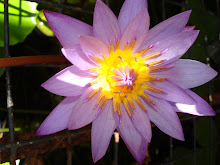












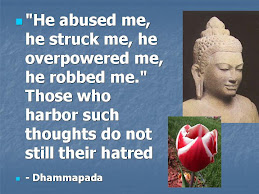

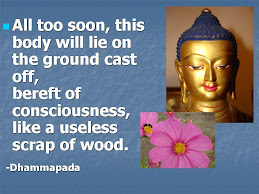
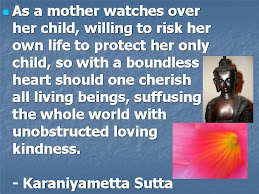
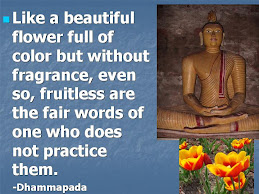
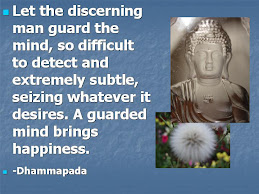

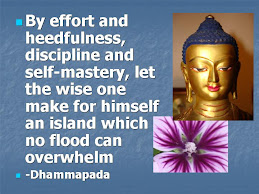

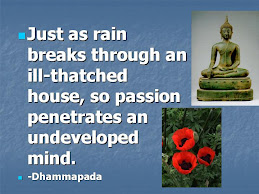

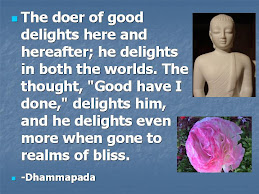
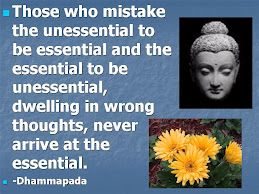
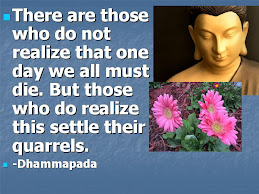
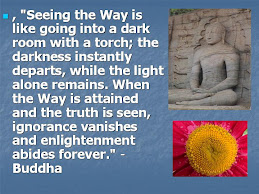

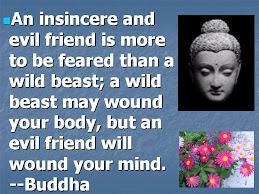
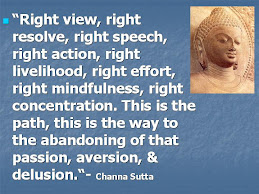

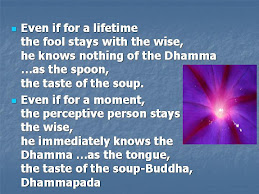


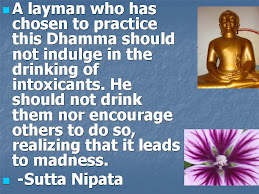
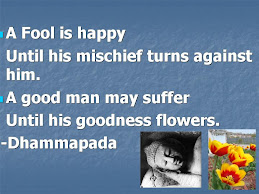
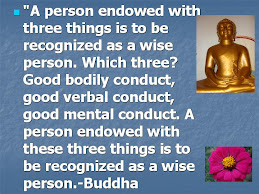

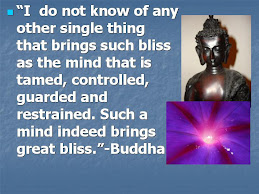
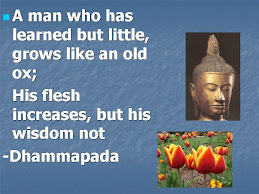
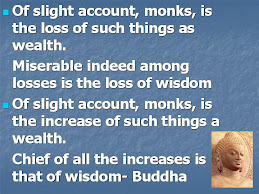

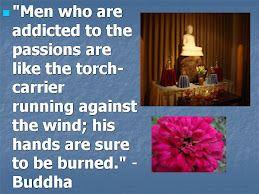


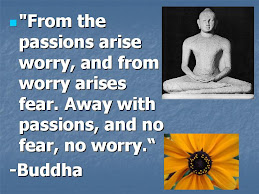
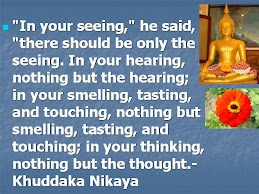




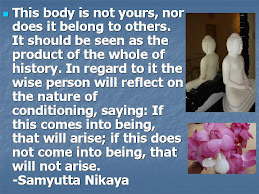
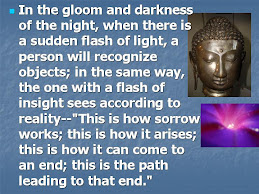
















8 comments:
Dr. Walpola,
Thank you for sharing this story. This is something I think of often. In this culture it seems we are taught to avoid the very mention of death. Mentally we run like crazy from it! Having spent 20 or so years working in hospitals, I've seen many people die filled with fear and anger. I hope that I will be like your friend one day too. To have the "medicine" ready and know how to use it.
Kris
Kris,
Thank you so much for your insightful comment. I just returned from my friend’s funeral. We had a Buddhist monk speak on the subject of death and how to contemplate on it often. From what everybody said this person has gone very far in the path of Dhamma. It was pleasure to hear all the wonderful things that people had to say about him. In my mind I have no doubt he is a true "Ariyashravaka” and is heading to Deva or Brahama realms to complete his journey.
Kris, you are absolutely right. Death is a subject we try to run away from in this culture. As you have correctly mentioned we tend to ignore this. The problem is when reality strikes we don’t know how to deal with it. We need to talk about this more openly and as Buddhist we need to contemplate on it more often. Finally I have to tell you that from what I have read in your blog you already have the "medicine". I am sure you already know how to use it.
With Metta
Piyal
From among the many tributes taht were paid on Friday night, the one that made a mark was the impression conveyed of this friend being 'a man who rarely showed anger".
I have read that: An entire spectrum of scientific studies support the findings that there is a “disease-resistant” as well as a “self-healing” personality. People with these personality traits enjoy better health than the population at large. Some of these traits are: enthusiasm, alertness, responsiveness, curiosity, security, self esteem, and contentment. Additional qualities and attributes of healthy people are the ability to express anger, resolve fears, manage loss, forgive self and others, and to see the world filled with hope." How could this friend of all people who displayed many of these traits have contracted cancer?
Hi Piyal
I think it would be true to say that you could not find a person so full of kindness and slow to anger as this this great man. He had many of the traits for a healthy personality described below.
An entire spectrum of scientific studies support the findings that there is a “disease-resistant” as well as a “self-healing” personality. People with these personality traits enjoy better health than the population at large. Some of these traits are: enthusiasm, alertness, responsiveness, curiosity, security, self esteem, and contentment. Additional qualities and attributes of healthy people are the ability to express anger, resolve fears, manage loss, forgive self and others, and to see the world filled with hope.
It puzzles me how he could have contracted cancer.
-Tara
Thank you for your comment.
First I will try to answer this question in a scientific perspective.
I am not sure what your background is, but in any case when you are citing scientific studies you have be very careful. The levels of evidence can range from Levels 1-5. For example level 1 is well-designed randomized trials using explicit criteria for inclusion and with adequately large total numbers. The level 5 is Expert opinion without explicit critical appraisal. I am not sure what level of evidence you have in the studies that you have mentioned.
Now how can bad things happen to good people? I think that is your main question. This is a very common question asked by many people. The personality traits you are describing like forgiveness, resolve fears, etc, can be mainly categorized as wholesome mental kamma. Now as we all know wholesome kamma should produce good results. So ideally this person should not get any illness and live as long as he wants. However we all know it this is not possible. We are all subjected to old age, sickness and death. Then the question is, why did this happen to him now? This can be the result of Kamma. This is a very complex subject. There are basically three types of kamma with regard to the time of their results: (1) kamma resulting in this life-time (ditthadhamma-vedaniya-kamma), (2)kamma resulting in the next life (upapajja-vedaniya-kamma), (3) kamma resulting in later lives (aparapariya-vedaniya-kamma). As we know this person did a lot of wholesome kamma this birth. Therefore one can argue he may have escaped getting this illness at a younger age because of the good results in this life-time (kamma type 1). Other possibilities are his illness may be a result of the 2nd or 3rd type of kamma as explained above.
Now this answer gets even more complex. Buddhists believe that some of the inequality of humans can be explained by kamma although it is not the sole determining factor. Buddha's teachings explains there are five orders or processes – Niyama Dhamma
1.Utu Niyama(Physical)
2.Bija Niyama(Biological)
3.Kamma Niyama (Ethical) -we already discussed briefly above
4.Citta Niyama (Psychological)
4.Dhamma Niyama (Spiritual)
What happens to us may be a result of a complex combination of physical, biological, psychological, ethical, or spiritual factors. It is possible that any combination of these factors can come into play at a given time. Therefore I think, kamma is only one of the five factors that come into play when something happens to us, either good or bad.
References:
1.Centre for Evidence Based Medicine- http://www.cebm.net/?o=1011
2.If you want to read more on kamma and related suttas- http://www.accesstoinsight.org/lib/authors/nanamoli/wheel248.html
Dr. Walpola, Tara,
I think we ask questions like 'why do bad things happen to good people' because we see this life as being the whole story instead of simply one episode in a series. As a result we base our assumptions, perceptions and judgments on incomplete data because we don't know what happened in previous episodes - ours or those of others. That's just my simple, and very unscientific take on this.
Also, there is the tendency to regard cancer and many other conditions, and death itself as some kind of punishment. As being 'not fair'. I don't think that's how it works. I have run into this reaction within my own family when relatives have died, and it always takes me by surprise.
Kris
Hi Kris
Thank you again for your comments.
It helped me to contemplate further on the subject and to write a new post. I hope it will help others.
Piyal
I'm glad it was helpful, and I learned a lot from the new post.
Kris
Post a Comment